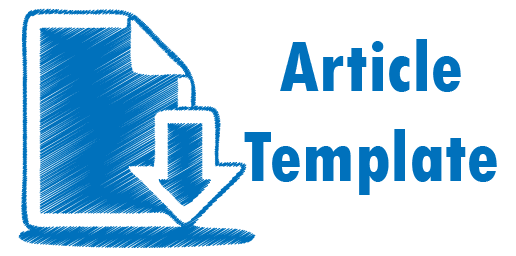The Effect of The Flipped-Guided Inquiry Learning (FGIL) Learning System Toward Student Outcomes on Chemical Reaction Rate
Abstract
This study aims to determine the effect of flipped-classroom based on guided inquiry learning system on students' learning outcomes of class XI students in SMA Negeri 8 Padang. The subject in this study were students of class XI MIPA 2 as the experiment class and students of class XI MIPA 1 as the control class using purposive technique sampling. The type of research is experimental quasi-equivalent control study design groups. The technique of data analysis used is two means similarity test (t-test). The object of this study is students’ learning outcomes on reaction rate material. The instruments of this study is used in the formative test consists of the initial test (pretest) and the final test (posttest) with 17 numbers of multiple choice questions based on the learning objectives. The difference between the pretest and posttest scores for experiment class is 48,77 while for the control class is 41,18. Data analysis shows that the subject are normally distributed and homogeneous so the t-test can be done, and the value of thitung obtained is 1,71. This proves that the learning outcomes between experiment class and control classes have significant differences. Based on data analysis, it shows that flipped-classroom based on guided inquiry learning system has proven the improve students' learning outcomes significantly.References
Aris, S. R. S., Saleh, M. F. M., & Ismail, M. H. (2020). Guided Cooperative Flipped classroom Approach in Learning Molecular Orbital Theory. International Journal of Academic Research in Bussiness and Social Science, 10 (14). https://doi.org/10.6007/ijarbss/v10-i14/76897)
Artikel, I. (2018). Peran Teknologi Dalam Pendidikan di Era Globalisasi. 2(2), 94-100
Aumi, V., & Mawardi, M. (2021). Validity and Practicity of Flipped Guided Inquiry based Learning (FGIL) model in Chemical Kinetics for Year I Students. International Journal of Progressive Science and Technologies (IJPSAT, 261(1), 142-147. https://ijpsat-ijsht-journals.org
Belawati, T. (2020). Pendidikan Kimia di Era Digital
Damaianti, O., Mawardi, M., & Oktavia, B. (2019). Development of Guided Inquiry based Worksheet on Colloidal Material for Chemsitry Learning Grade XI in Senio High School. International Journal of Progressive Sciences and Technologies (IJIPSAT), 14(1), 13-19
DeMatteo, M. P. (2019). Combining POGIL and a Flipped classroom Methodology in Organic Chemistry. CS Symposium Series, 1336, 217-240. https://doi.org/10.1021/bk-2019-1336.ch013
Hanson, D. M. (2005) Designil Process-Oriented Guided-Inquiry Activities. Faculty Guidebook – A Comprehensive Tool for Improving Faculty Performance, 1-6
Karim, B. A. (2020). Pendidikan Perguruan Tinggi Era 4.0 dalam Pandemi Covid-19 (Refleksi Sosiologis). Education and Learning Journal, 1(2), 102. https://doi.org/10.33096/eljour.vli2.54
Sinta, T. (2019). Pengembangan Model Pembelajaran Blended Learning Berbasis Edmodo untuk Pembelajaran Kimia yang Efektif. Chemistry in Education, 8(1), 7-12.
Sudjana, N. (1989). Pendekatan Sistem bagi Administrator Pendidikan. Bandung: Sinar Baru.
Sigiyono. (2009) Metode Penelitian Kuantitatif Kualitatif dan R&D. Bandung: Alfabeta.
Susanti, L., & Hamama Pitra, D. A. (2019). Flipped classroom sebagai Strategi Pembelajaran pada Era Digital. Health & Medical Journal, 1(2), 54-58. https://doi.org/10.33854/heme.vli2.242
Watson, J. (2020). Teacher Education and K-12 Online Learning. INACOL, the International Associaton for K-12 Online Learning, July, 1-20. https://files.eric.ed.gov/fulltext/ED560799.pdf
Copyright toward articles published by Entalpi Pendidikan Kimia is hold by Entalpi Pendidikan Kimia. In the other side, Entalpi Pendidikan Kimia also applied CC Attribution 4.0 which means you could 1) share — copy and redistribute the material in any medium or format; and 2) adapt — remix, transform, and build upon the material; for any purpose, even commercially. As long as you give us attribution — You must give appropriate credit, provide a link to the license, and indicate if changes were made. You may do so in any reasonable manner, but not in any way that suggests the licensor endorses you or your use. Entalpi Pendidikan Kimia also applied Open Access toward each published articles, so the published content will be available freely for public.





